Nervous About Your First Flight? You’re Not Alone! Our Travel Tips for First-Time Flyers can transform your experience from stressful to smooth. Many first-timers feel unsure about what to expect—whether it’s navigating airport security or managing your carry-on. But with a little guidance, you can feel prepared and confident.
Here’s your plan:
- Pack essentials for comfort
- Understand your boarding pass
- Navigate security easily
- Board with confidence
- Enjoy in-flight entertainment
With these tips, you’ll be ready for an exciting and stress-free journey. Let’s get started!
- The Importance of Being Ready for Your First Flight
- Top 12 Travel Tips for First-Time Flyers
- 1. Packing Essentials for Your First Flight
- 2. Checking In for Your First Flight
- 3. Understanding Your Boarding Pass
- 4. Navigating Airport Security
- 5. Boarding the Plane With Confidence
- 6. Enjoying In-Flight Entertainment
- 7. Managing Customs and Baggage After Landing
- 8. Connecting Flight Tips for First-Time Flyers
- 9. Using Your Airline’s App for a Stress-Free Experience
- 10. Overcoming Jet Lag
- 11. Travel Safety Tips for First-Time Flyers
- 12. Travel Insurance
- Travel Tips for First-Time Flyers: A Recap
- FAQ


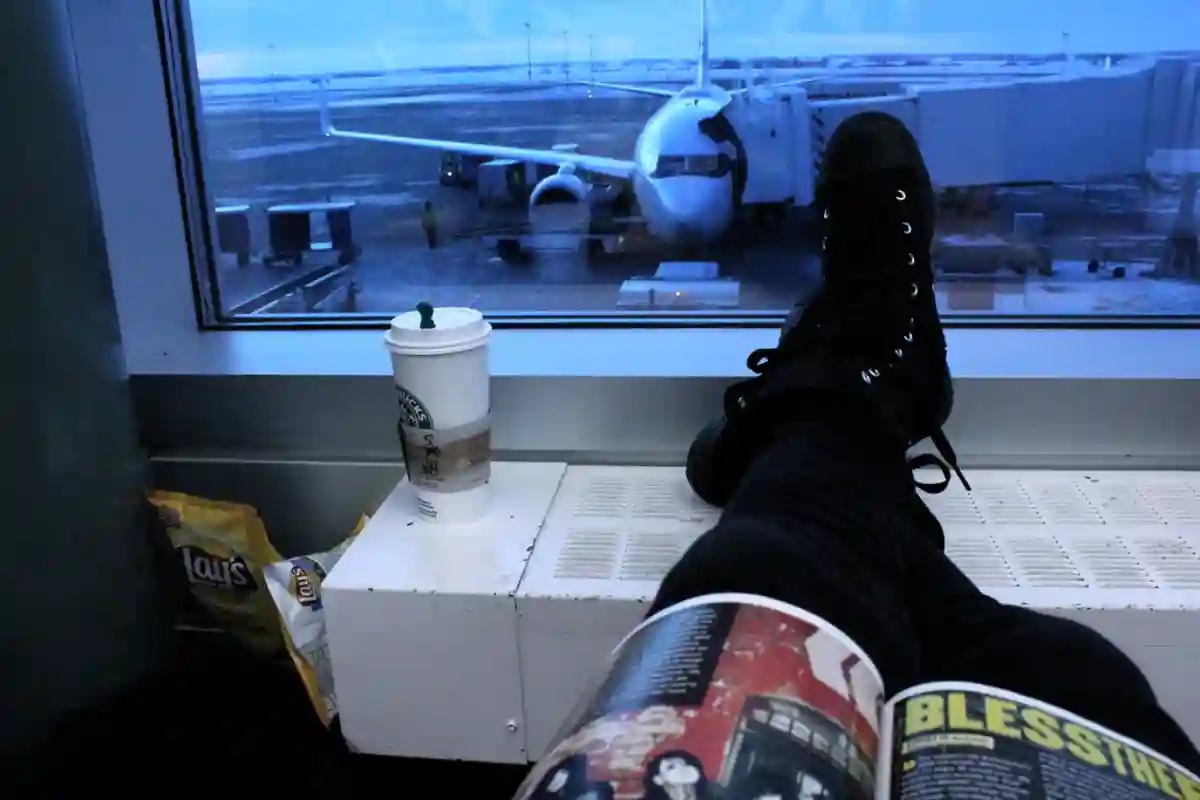
The Importance of Being Ready for Your First Flight
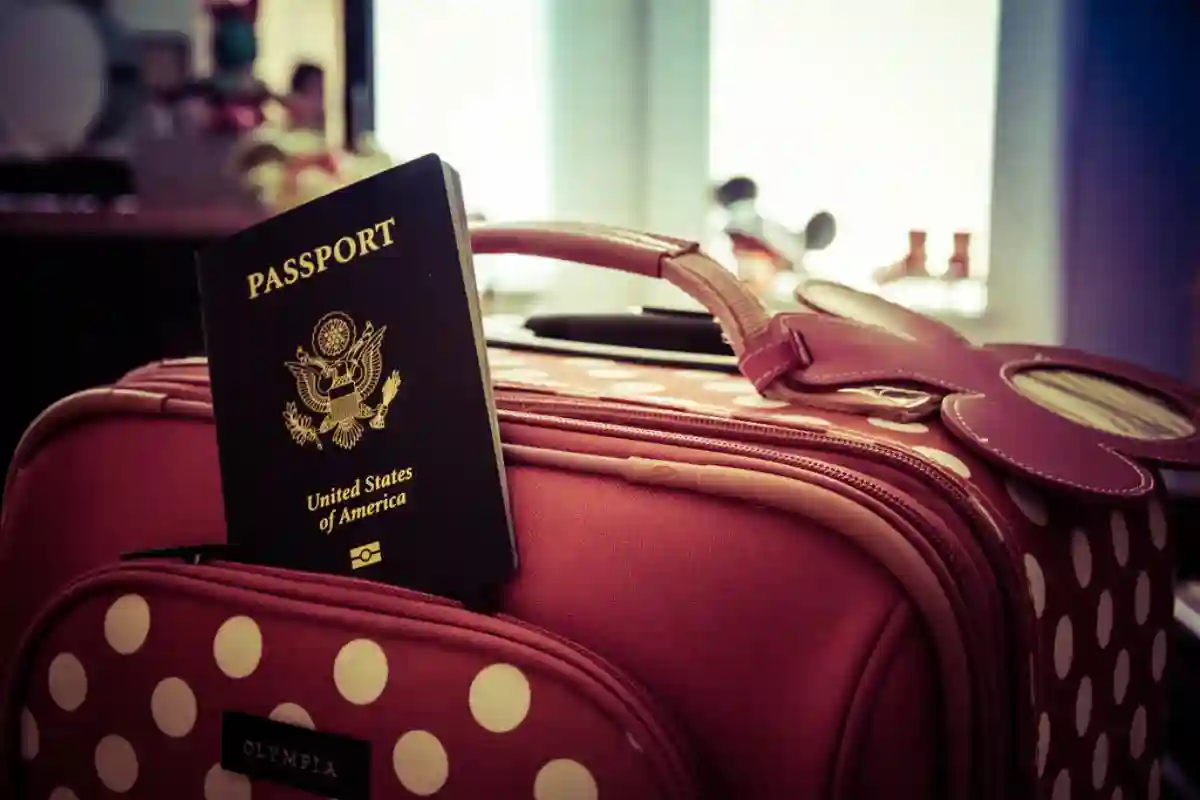
Being prepared for your first flight is essential for a smooth journey. Expect airport waits, security checks, and long lines. Make sure your boarding pass, travel documents, and cabin bags are ready. A little planning will help reduce stress and boost your confidence. Whether you’re flying domestically or internationally, having the right essentials, like:
- Passport
- Driver’s license
- Boarding pass
- Travel documents
- Cabin bags
will ensure you’re all set.
By knowing what to expect and arriving three hours early, you’ll be ready for an enjoyable journey, whether you’re seated in an aisle seat or a window seat.
See Also Amsterdam Travel Tips
Top 12 Travel Tips for First-Time Flyers
1. Packing Essentials for Your First Flight
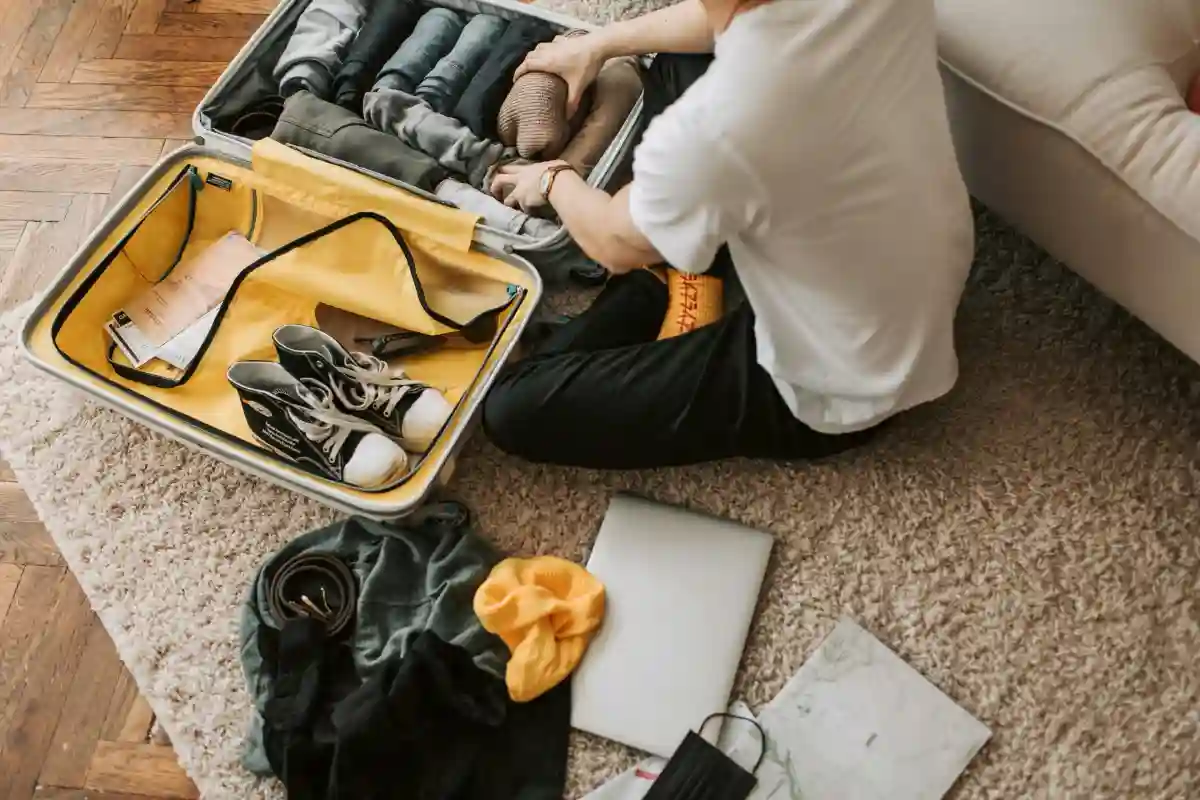
For a smooth journey on your international flight, pack your cabin bag with essentials like:
- Water bottle
- Snacks
- Medications
- Charger
Keep your passport, boarding pass, and any tickets in an easily accessible pocket. A travel pillow ensures comfort, especially on long flights.
Don’t forget a quart-sized bag for liquids and follow Transportation Security Administration (TSA) rules. Make sure to check your scheduled departure time and arrive at the airport hours early to avoid rushing. Know your overhead bin space and ensure you have your item ready for easy access.
2. Checking In for Your First Flight
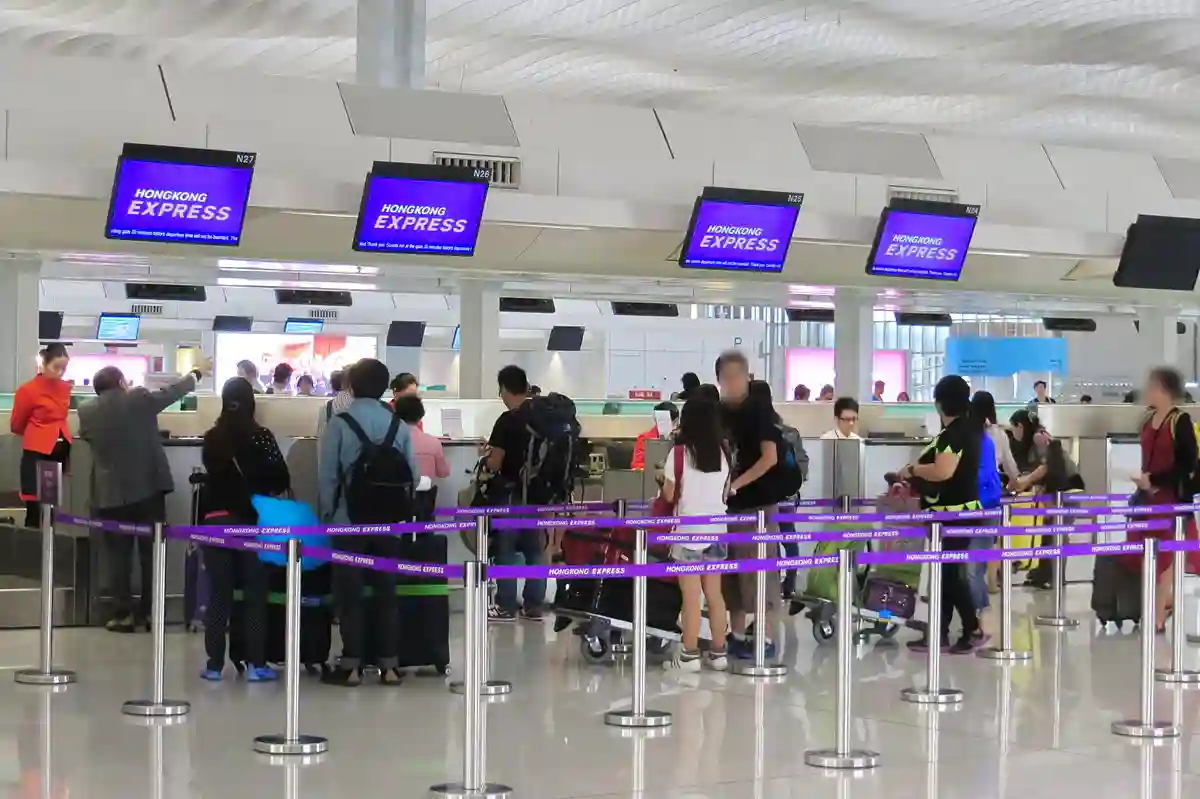
When first-time flyers check in, it’s essential to stay up to date with flight departure details. You can easily check in online via the airline app or website, saving time and avoiding queues at the check-in counter. This will also help you track your scheduled departure time and manage any baggage fees.
For a smoother experience, ensure you have your:
- If you have a checked bag, follow the airline’s airplane etiquette.
- Driver’s license or passport ready for passport control verification.
3. Understanding Your Boarding Pass
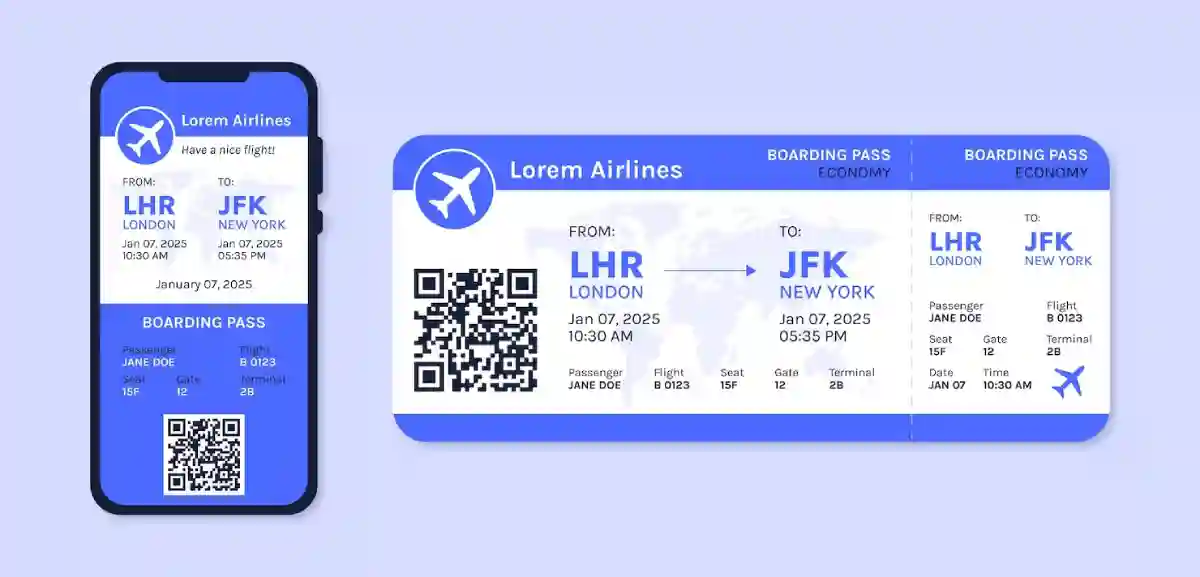
Your boarding pass is key for first-time flyers. It includes your:
- Flight number
- Departure gate
- Seat assignment (aisle, window, or middle)
Double-check the scheduled departure time and flight status to stay up to date. Having your boarding pass ready helps you breeze through security, saving time for final destination preparations.
For first-time flyer tips, make sure to:
- Have a personal item (like a small bag, backpack, or laptop) and an empty water bottle ready for the journey.
- Know your boarding group and gate details to avoid confusion.
- Be aware of your ticket price and baggage fees.
4. Navigating Airport Security
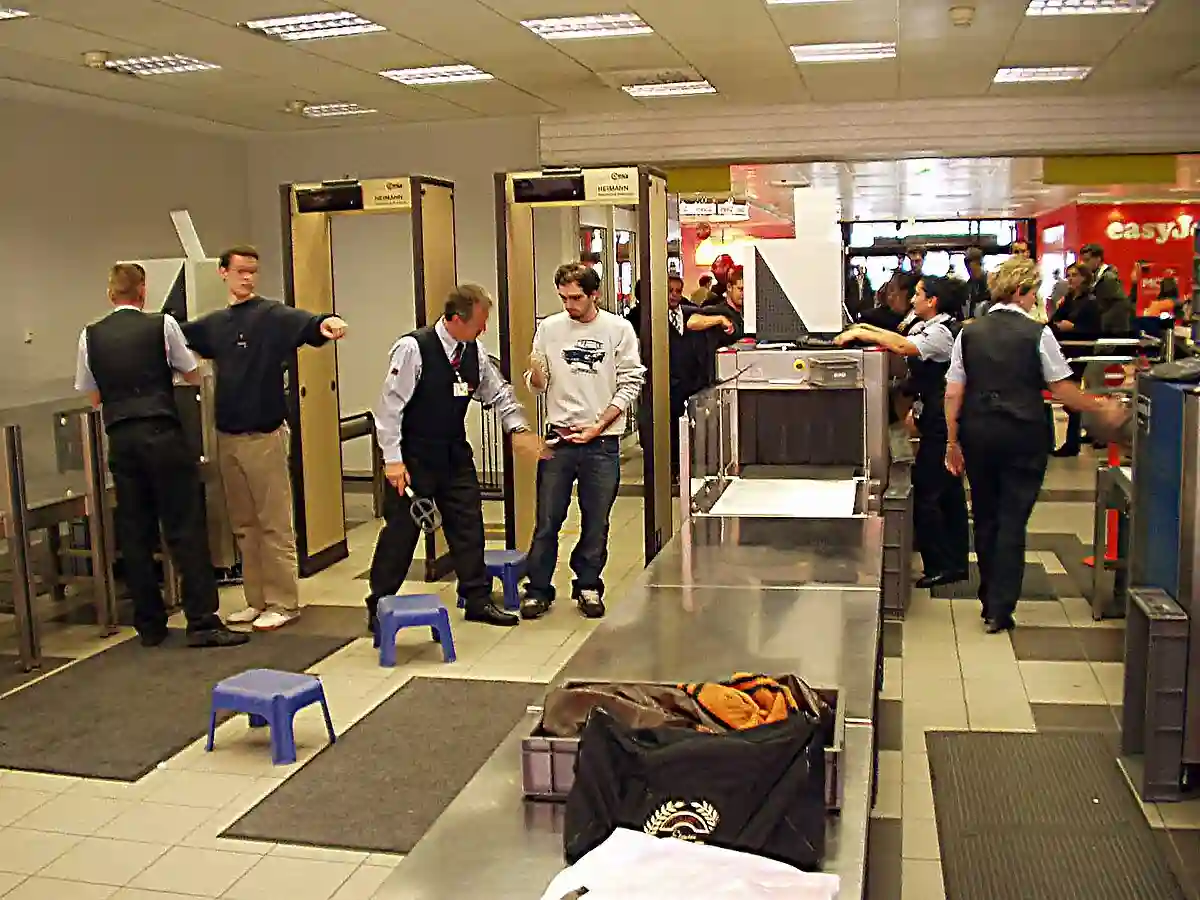
Before approaching the security checkpoint, make sure you have your:
- Boarding pass and ID ready.
- Empty your pockets and place any liquids (in a quart-sized bag) and electronics in separate bins.
- Wear easy-to-remove shoes to save time.
To breeze through security, be prepared for the TSA agent’s instructions and follow the flow. Keep your documents close, and remain calm as you pass through the metal detector.
If you’re unsure about a rule, ask a staff member for help—they’ll guide you.
5. Boarding the Plane With Confidence
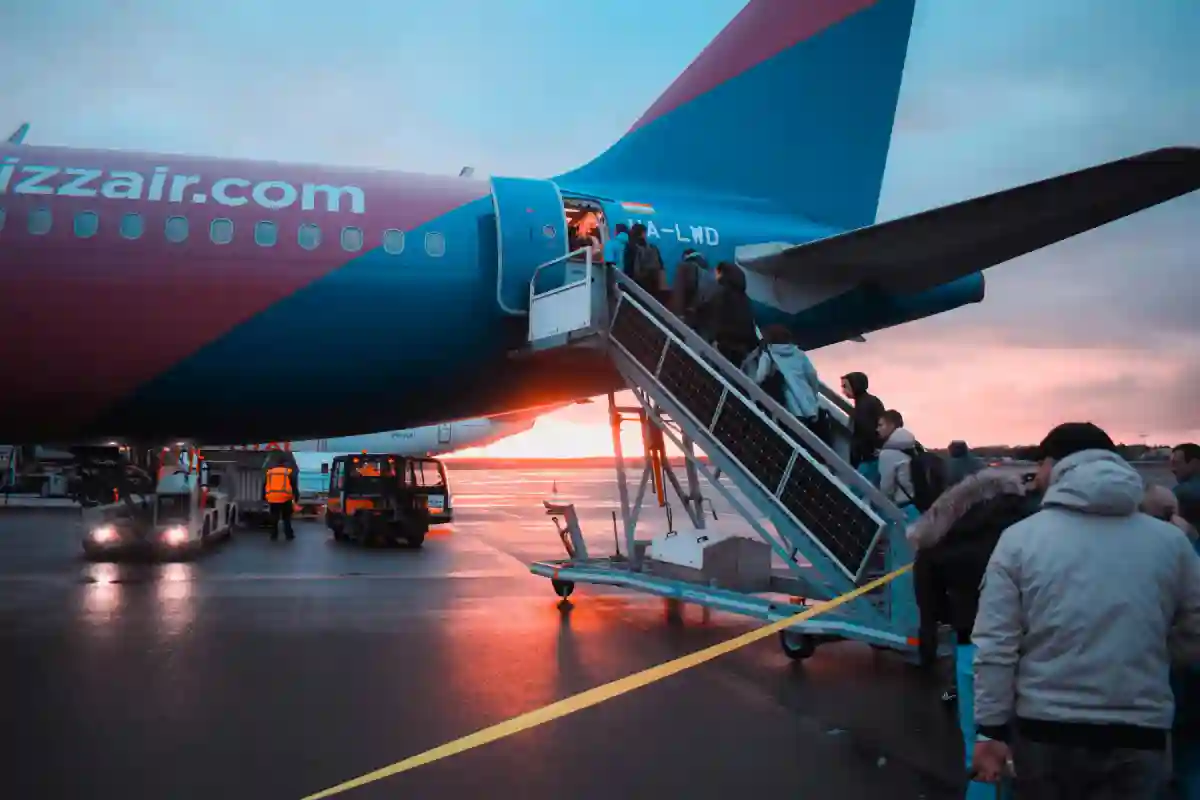
Boarding for your domestic flight or first class is typically done in groups based on your seat assignment. Listen for announcements at the gate for boarding instructions. When it’s your turn, have your digital boarding pass ready for scanning.
Once aboard:
- Follow the overhead signs to find your seat.
- If you’re unsure, the cabin crew or flight attendants are happy to assist.
If you’re feeling nervous, take deep breaths and focus on the excitement of your journey. Once seated, stow your carry-on luggage in the overhead bin or under the seat in front of you.
6. Enjoying In-Flight Entertainment
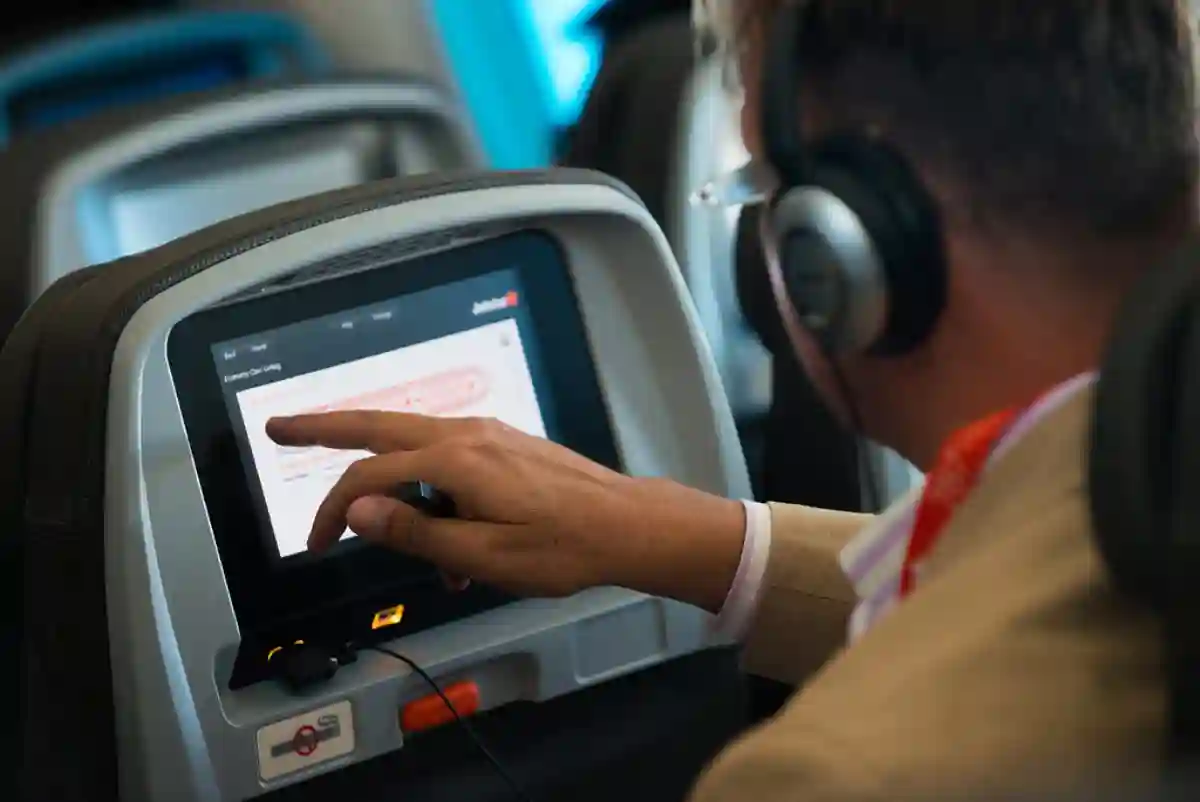
Many domestic flights offer a variety of in-flight entertainment like movies, music, and TV shows. Some planes have individual screens, while others let you stream content to your device. For an optimal experience, remember to:
- Bring your headphones.
- If you prefer reading, pack a book or download some articles.
Don’t forget to make use of the overhead bin space for your essentials and relax.
Whether you have a window seat or an aisle seat, flying can be an exciting and peaceful experience. Just remember to follow airplane etiquette.
7. Managing Customs and Baggage After Landing
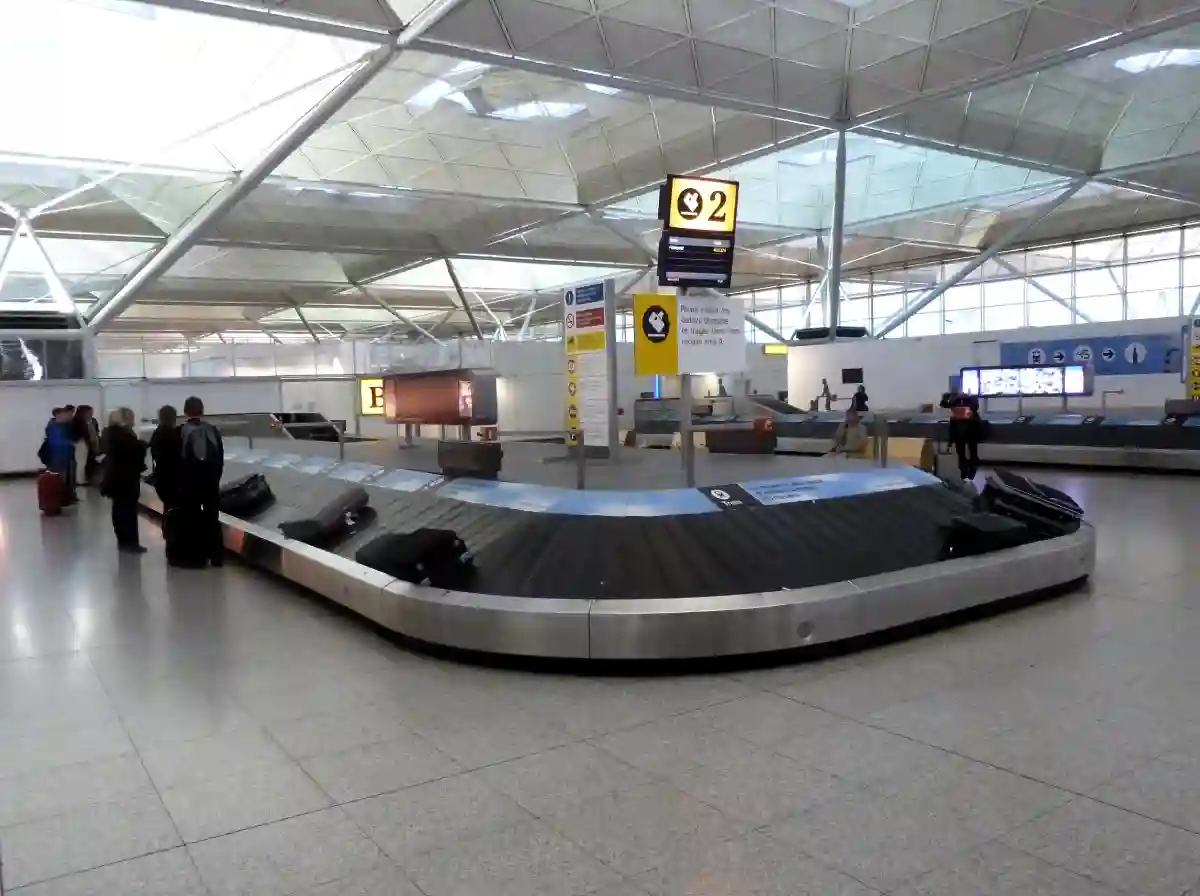
After landing, you’ll head to customs, where you’ll show your travel documents and possibly answer a few questions. Follow the signs to baggage claim to pick up your checked bags. If your luggage doesn’t arrive, immediately visit the airline’s customer service counter.
Once you have your bags, proceed to your destination’s transportation area—be it a taxi, shuttle, or rental car.
If your flight has delays, stay updated via the airline app and ask staff for assistance in making alternate arrangements. For more guidance, check out travel tips for first-time flyers to make your journey even smoother.
8. Connecting Flight Tips for First-Time Flyers
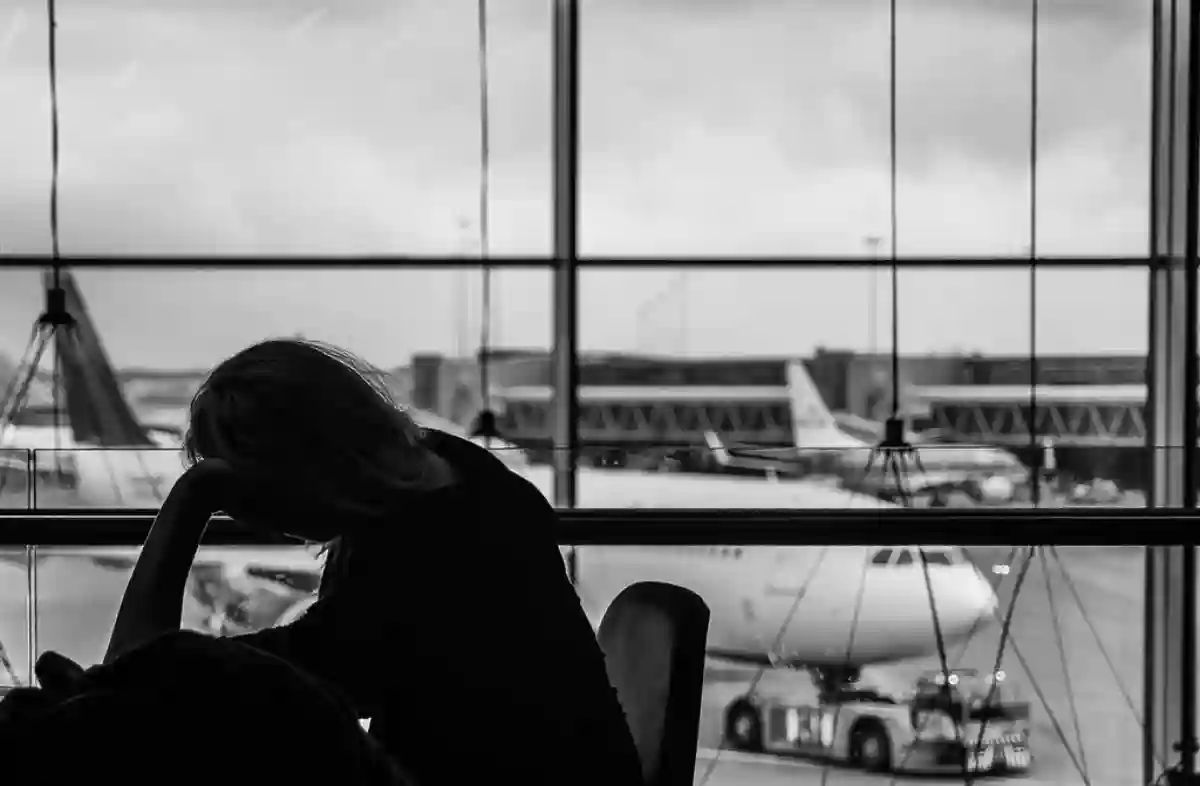
When first-time flyers have a connecting flight, it’s important to:
- Know the gate and terminal for your next flight before landing.
- Most airlines provide gate info on monitors, so check regularly.
- Be mindful of the time between flights—if it’s short, head straight to your next gate.
Follow signs to connecting flights, and don’t hesitate to ask flight attendants or staff for help. If you need to pass through security again, have your boarding pass and ID ready. Allow extra time in case your flight departs or changes unexpectedly.
9. Using Your Airline’s App for a Stress-Free Experience
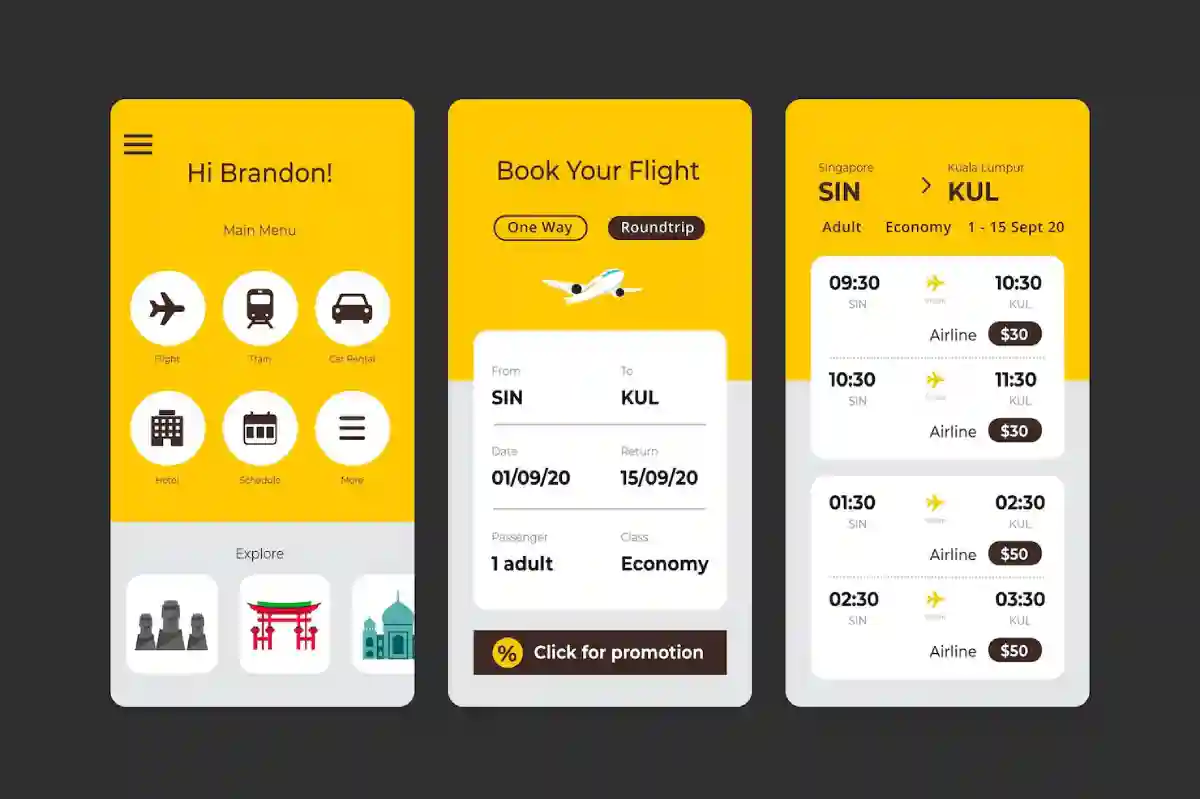
Your airline’s app is a valuable tool for a smooth trip. You can check in, get your digital boarding pass, and track your flight status in real-time. The app often sends reminders for gate changes, boarding time, and luggage pick-up.
Some apps even offer seat selection and in-flight entertainment options. Using the app can save you time, especially if you’re flying internationally or on connecting flights. Keep it handy for quick updates and to stay on top of any changes during your journey.
10. Overcoming Jet Lag

Jet lag can be tough, especially on international flights. To manage it:
- Adjust your sleep schedule to match your destination’s time zone.
- Stay hydrated and avoid caffeine or alcohol.
Once you land:
- Get plenty of sunlight.
- Take short naps, but avoid sleeping too much during the day.
Your body will adjust, and you’ll feel back to normal in a few days.
11. Travel Safety Tips for First-Time Flyers
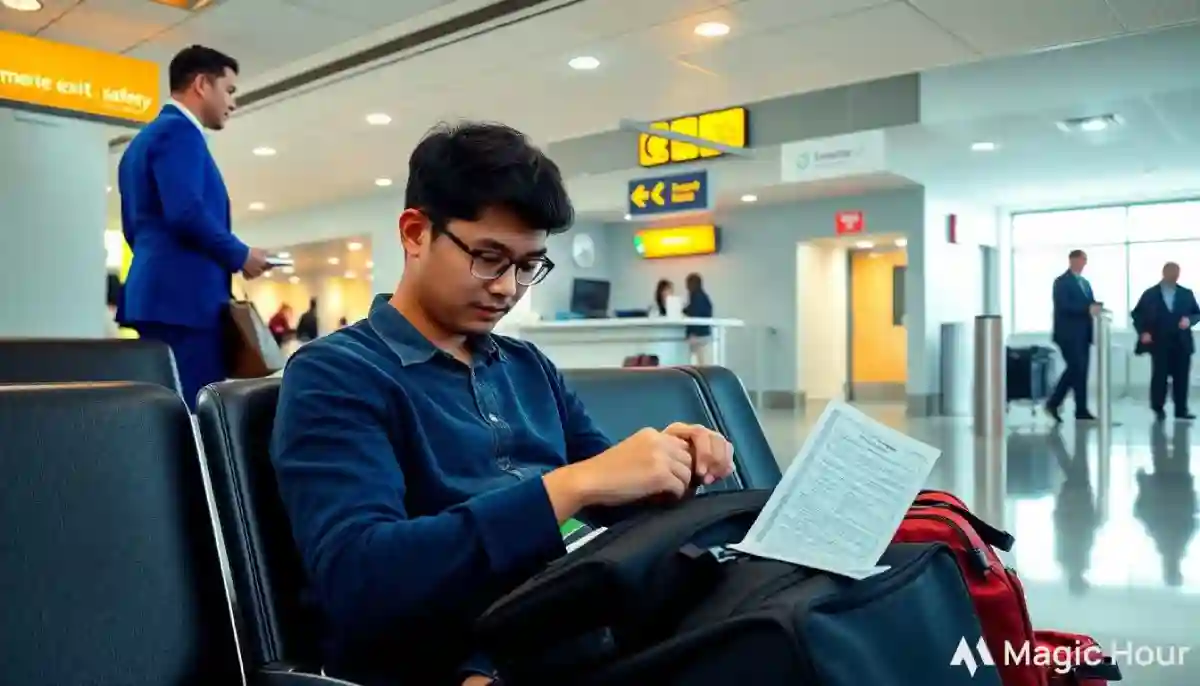
Safety is key when flying, especially for first-time flyers. To stay safe:
- Keep valuables in a safe place, like your carry-on bag.
- Follow security instructions and be aware of emergency exits.
- Pay attention to flight attendants’ safety briefings.
If your flight has delays or cancellations:
- Keep your travel documents handy to resolve issues quickly.
- Visit the customer service desk to explore your options.
- Stay calm and know your rights.
12. Travel Insurance

Travel insurance is essential for first-time flyers. It covers unexpected incidents like:
- Flight cancellations
- Medical emergencies
- Lost luggage
Select a plan that includes:
- Trip interruption
- Emergency medical coverage
- Protection for your flight and destination
Check what’s covered, especially for international travel, where medical care can be expensive.
Always carry emergency contact information, including the location of the nearest embassy. Basic safety precautions, like:
- Avoiding risky areas
- Being cautious with your health
It will help keep your trip smooth and safe.

Travel Tips for First-Time Flyers: A Recap
Flying for the first time can feel overwhelming, but with the right first-time flying tips, you’ll be set for success in your air travel experience. Arrive at the airport early, manage your checked luggage, and understand your boarding pass to reduce stress. Whether you’re flying business class or sitting in a middle seat, being prepared makes all the difference.
Stay up to date with real-time updates via your airline’s app, and be aware of TSA agent procedures to avoid issues like denied boarding. If you need assistance, the flight attendants are there to help you with any questions or concerns during your flight. Follow these first-time flyer tips for a smooth, enjoyable journey. Safe travels, first-time fliers!




